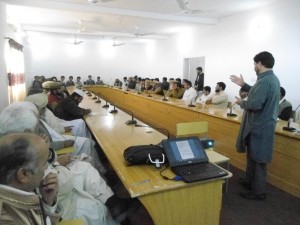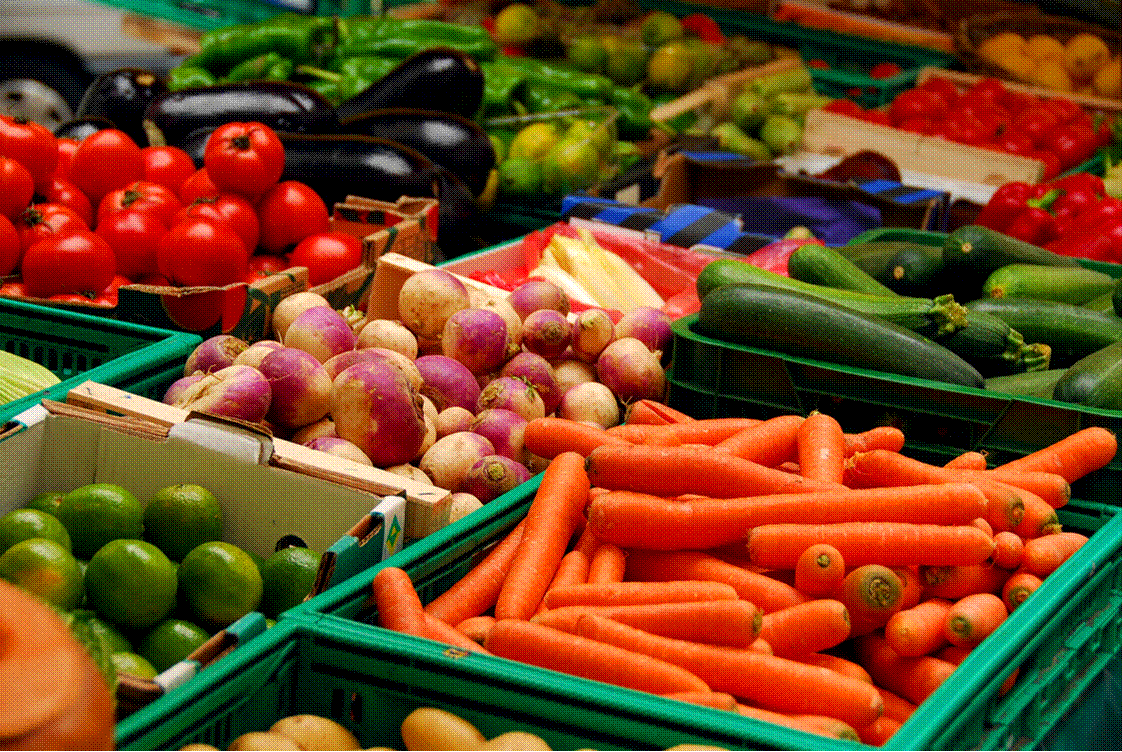Problem Statement:

 In response to the feedback received on the issue brief submitted to the secretariat regarding targeting the illegally occupied schools in district Mardan, a special meeting District Governance Group (DGG) was held for identifying another issue to be advocated. While discussing about the purpose of meeting, the group shared that as they are regularly observing the situation and identifying different issues, therefore, they have already planned to work on the issue of price hike in daily commodities and probe reasons and factors behind variations in prices of edible items.
In response to the feedback received on the issue brief submitted to the secretariat regarding targeting the illegally occupied schools in district Mardan, a special meeting District Governance Group (DGG) was held for identifying another issue to be advocated. While discussing about the purpose of meeting, the group shared that as they are regularly observing the situation and identifying different issues, therefore, they have already planned to work on the issue of price hike in daily commodities and probe reasons and factors behind variations in prices of edible items.
While analyzing the issue from various angles, it was noted the issue is of high importance and there is a dire need to highlight the issue, its reasons and affects among stakeholders.
The agricultural commodities have the historical habit of changing its prices in different seasons. This variation in prices is tied to annual nature of crop cultivation. Seasonal prices also depend on supply and demand fundamentals.

In District Mardan, however it has been observed that the prices of food commodities vary from shop to shop and stall to stall. It is also an undeniable fact that although the shopkeepers have the latest price list displayed at the shops and stalls, which are approved by price magistrates, the prices of the items charged at some of those shops and stalls are alarmingly high.
There are good reasons to believe that the poor suffer the most from these prices changes. In broader aspects, the expansive edible item will catch less attention of poor and there is a good chance that the poor will settle for buy less of these items which leads to decline of those items causing massive decrease in its prices.
Furthermore, the carelessness in managing the food commodities, exhibits in the unhygienic conditions of food items. Many shops and stall owners wash the food items in contaminated water sources, which not only give rise to the rotten food items increased due to the bacteriological contamination of the contaminated reservoir, but spreads water borne diseases such as cholera, diarrhea, hepatitis, typhoid and other kinds of intestinal infections.

The shopkeepers do not take necessary precaution in preparing and administering the food items such as washing hands thoroughly in safe and clean water. The cooking oil at the fry food stalls remain unchanged for many days, in fact some owners add new oil with the already used oil which is even more dangerous. The leftovers of meat items are sometime scattered near butcher shops as well as scattered in market, which are an open invitation to carnivores roaming in the streets nearby to spread further hygiene related problems.
Most of the roadside delicacies such as channa chola and fruite chart, beans and cold drinks are particularly setup near the roads which are exposed to roadside pollution and contamination. In addition to that, stalls of these roadside delicacies are spreading diseases that can spread from mouth and throat and to lungs such as Tuberculosis due to the spoons used by the stalls.
Causes:
There are some reasons behind this issue:
- There is no or low monitoring from the concern department.
- The minimized number of visits and raids from Food Inspectors.
- Lack of proper arrangements for placing the mobile shopkeepers.
- Lack of interest of Price Magistrate in monitoring the performance of field staff.
- Lack of meaningful coordination among department, union, price review committees and consumers.
Effects:
Due to lack of enforcement, the people lose their interest in government
People/ consumer financial exploitation
Due to poor quality of different commodities leads to various health problems like food poising, stomach and throat problems.
Identification of Relevant Actors:
The Monitoring system regarding price control is extremely weak due to the following reasons.
- Influence of the Trade Unions
- Increased bribing system in the public institution
- Less coordination among Institution, Unions and vendors
- Lack of Government interest/support in making enforcement price list
- Lack of proper and effective enforcement mechanism
Enforcement Environment:
As per the enforcement mechanism, District Administration and TMA have to make arrangements for price control and to ensure hygienic conditions of edible commodities for the healthy environment in the district but the ground reality is totally different. It was observed in the market that the existing food controller and food inspectors due to some reasons give leverages to the vendors/shopkeepers for establishing the prices suit them. Some of the reasons include but not limited to bribes, nepotism and influence of the shopkeepers.
Advocacy Options:
Meaningful Coordination among Department, Price review committee, vendors and Consumers for developing monthly price list and other market commodities and price related issues.
Regular monitoring visits of food inspector for controlling the prices and quality of market commodities.
Implementation of existing rules of price and quality control
Strategy Options:
- Letters to ACO/Price Magistrate
- Letter to DCO
- Meetings/ engagement with all stake holders.
- FGDs with Trade unions
- Media.
Setting Advocacy Goals:
- To make sure the enforcement of the existing rules for market inspection.
- Identification of Allies and Opponents:
- Allies:
- District Administration
- Tehsil Municipal Administration (TMA) Tehsil Takht Bhai and Tehsil Mardan
- Community
- Elected Representatives
- Trade Unions
- District Price Review committee
- Opponents:
- Vendors
- Individuals/Officials from Department

